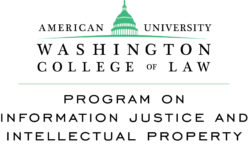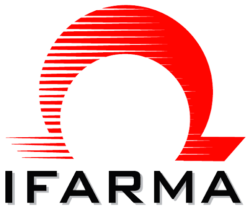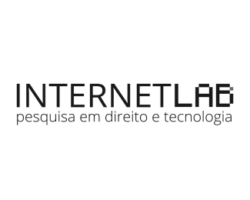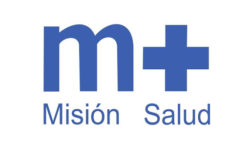American University PIJIP – Academic – ??

The Program on Information Justice and Intellectual Property (PIJIP) is the internationally recognized intellectual property and information law research and academic program of American University Washington College of Law (AUWCL). Our prolific IP faculty has expertise in every major topic of the field, including Copyright, Patent, Trademark, Trade Secret, Cyberlaw, and international IP. PIJIP projects promote justice in the making and effect of laws that distribute informational resources. Our central methodology involves the linking of academic research to global public interest policy advocates.
Fundación Karisma – Civil society – ??

Fundación Karisma is a Colombian non-profit that responds to opportunities and threats that arise in the context of ‘technologies for development’, especially as they relate to the respect for human rights, personal freedoms and social inequality. Founded in 2003, Karisma is one of the leading Latin American civil society organizations working on the promotion of human rights in the digital environment. Karisma’s current priorities are access to knowledge, security and privacy, social innovation, freedom of expression, Internet governance and gender and social equality, as they relate to information and communications technologies (ICTs).
Fundación IFARMA – Civil society – ??

Fundación IFARMA is a non-profit organization created in Colombia in 2001. IFARMA carries out research, consulting and activism activities, focused on the issues of access, use, and quality of medicines. The main objective of IFARMA is to positively influence public health and pharmaceutical policies in Colombia and in the Americas, with the ultimate goal of guaranteeing the human right to health and access to treatment, with equity to all who need them. IFARMA has led research and advocacy in the region in terms of the impact of intellectual property on access to medicines within the framework of the Free Trade Agreements negotiations of some Latin American countries (Colombia and Central America) and the European Union and the United States. IFARMA has also lead the three requirements for compulsory licensing and/or public health interest declaration for essential medicines that have taken place in Colombia. Currently, IFARMA works on the democratization and empowerment of community-based organizations regarding the guarantee of the right to health, access to medicines, and patent protection.
Centro de Internet y Sociedad de la Universidad del Rosario ISUR – Academic – ??

The Internet and Society Center of the Universidad del Rosario (ISUR) is a research center that works from a public interest and human rights perspective on issues related to the social challenges posed by technological changes. By developing research and discussions, ISUR seeks to inform, influence and put on the institutional agenda Colombian and regional debates on these issues. The Center welcomes students, researchers and people interested in studying society, learning, researching and promoting strategies that empower communities through the use of technology, becoming a team of creative and critical thinkers and academics in the national and international society. ISUR addresses the interdisciplinary analysis of digital technologies with a vision from the global south. It investigates the relationship between the Internet and the legal framework and fosters relationships between institutions, learning dialogues, explorations and discoveries.
InternetLab – Academic – ??

InternetLab is a Brazilian independent organization whose mission is to produce sophisticated, evidence-based and impact-oriented social and legal research and analyses to identify and clarify critical issues, thereby helping to build the intellectual and evidential foundation for public awareness, action, and policy-making. We are premised on the idea that the digital environment must be vibrant, creative, inclusive, diverse and protective of fundamental rights. As an independent think-and-do tank, we respond quickly and flexibly to the most pressing social, political and policy challenges and needs identified in the digital rights field. We are working on copyright and access to knowledge, freedom of expression, privacy and surveillance, inequalities and identities online, and information, politics and democracy.
Misión Salud – Civil society – ??

Misión Salud is a Colombian non-profit civil society organization whose goal since its foundation in 1998, has been to promote and defend the right of Colombians to health and access to medicines with a focus on the impact of intellectual property measures and technical barriers to competition. Misión Salud promoted access to medicines along the whole process of adaptation of the Andean Community of Nations’ legal framework to TRIPS, the Free Trade Agreement Negotiation between Colombia and the United States, the European Union and EFTA. Misión Salud advocates in national and international scenarios to promote that governmental institutions prioritize public health over commercial interests when formulating and implementing policies, trade agreements and regulations related to intellectual property and medicines. Misión Salud coordinates (a) the Committee of Oversight and Cooperation in Health which articulates 6 organizations from academy, civil society and church in Colombia dedicated to promote access to and rational use of medicines, (b) the Global-LAC Alliance on Access to Medicines which gathers 16 civil society organizations from LATCA region, Europe and North America dedicated to promote access to medicines, and (c) the collective of organizations that requested the IACHR to hold the thematic hearing on access to medicines and right to health.


